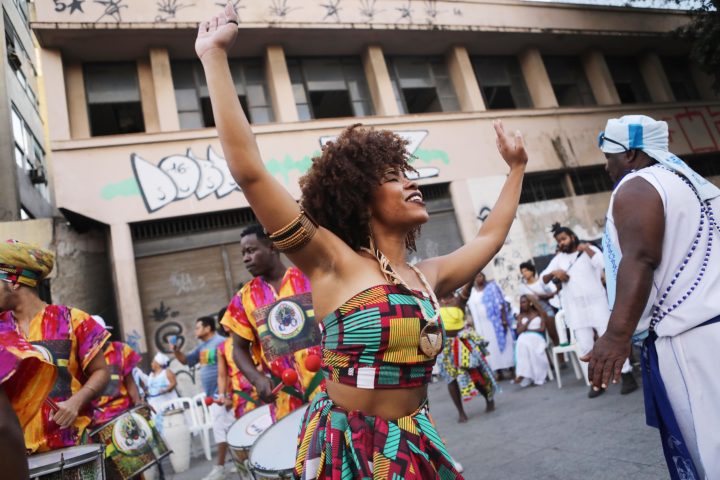If you traveled to the Northeastern state of Bahia in Brazil, you’re more than likely to encounter a lifechanging street food known as Acarajé.
Acarajé is made of ground-black eyed peas with ingredients such as onions and pepper shaped into fritters and deep-fried in dendê oil – which has origins from West Africa when the seeds of the Elaeis guineensis tree were brought from Africa to Brazil.
“All Bahian cuisine, basically along the coast, takes azeite de dendê,” Brazilian chef Isis Rangel told the Matador Network. “It’s a cuisine recognized in the entire world. It’s delicious, with an intense flavor, and azeite de dendê gives it the special touch — in its color and taste.”
While the dendê oil is often referred to as West African “palm kernel oil,” it’s simply not true–as palm oil is typically made from the seed of a coconut. Dendê oil, however, is made from the fruit of the tree, which gives the oil its distinct burnt orange color.
Dendê Oil In Afro-Brazilian Cuisine
Many descendants of African slaves brought to Brazil by the Portuguese in the 1500s live in the state of Bahia.
Afro-Brazilian cuisine can be found throughout Brazil, but it is especially noticed in Bahia where the influence of West African culture has been kept alive.
Afro-Brazilian cuisine that uses dendê oil includes acarajé, which is often enjoyed as street food, but moqueca as well. Moqueca, also known as Brazilian Seafood Stew, is typically served in Brazil’s best restaurants. It’s a lime-marinated fish baked stew prepared inside a terracotta pot with tomatoes, peppers, onions, garlic, cilantro, coconut milk, and of course, dendê oil that’s served over white rice.
